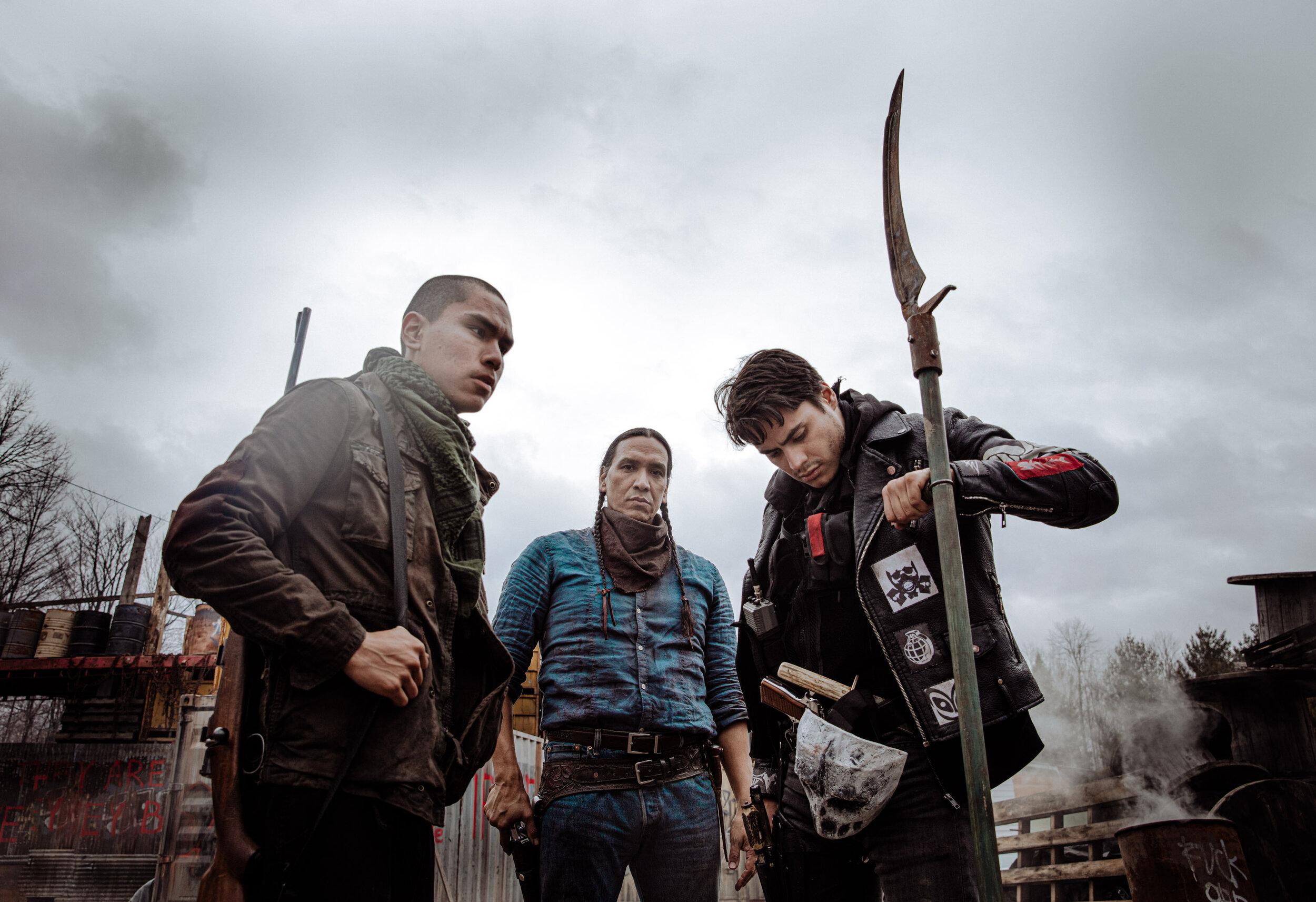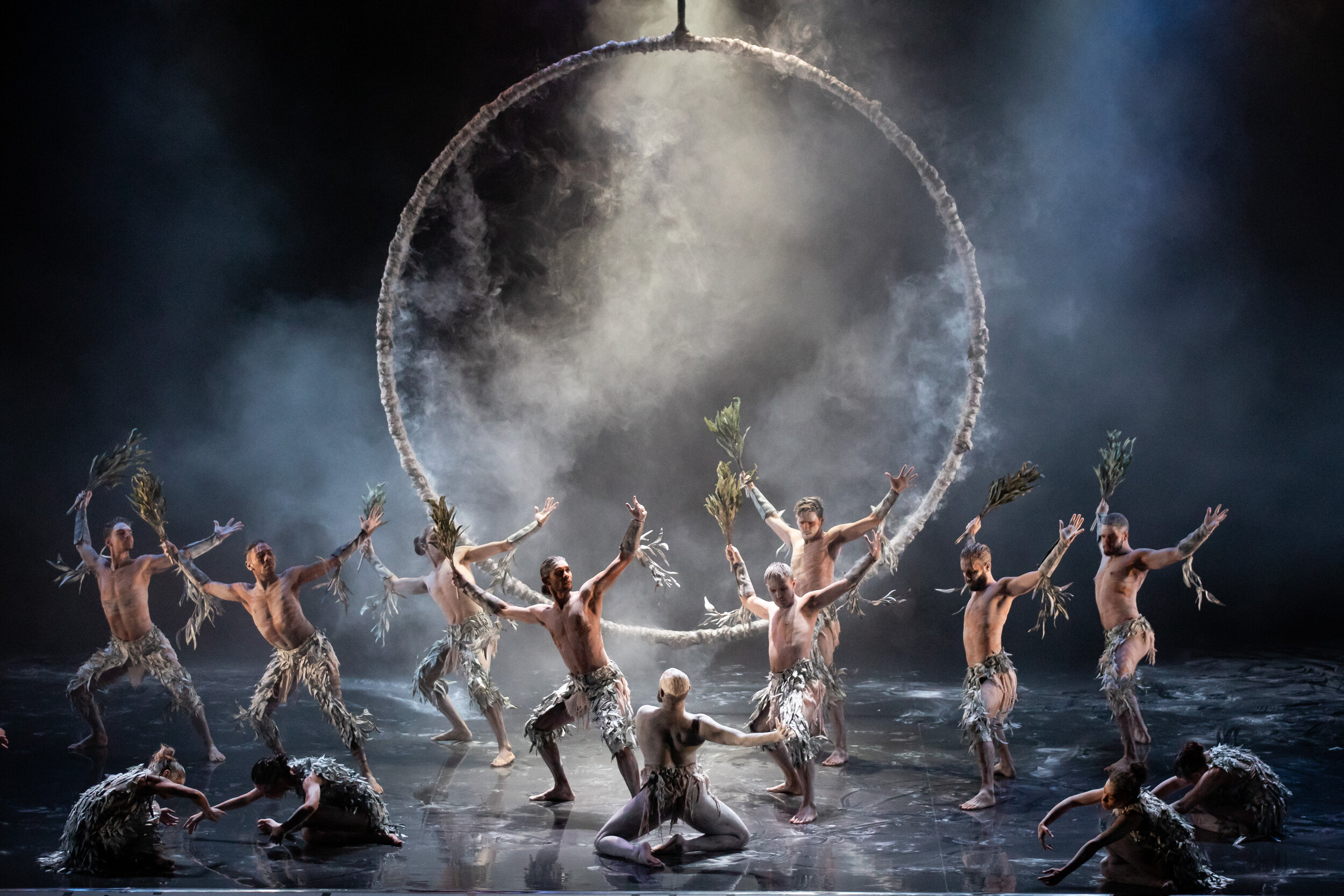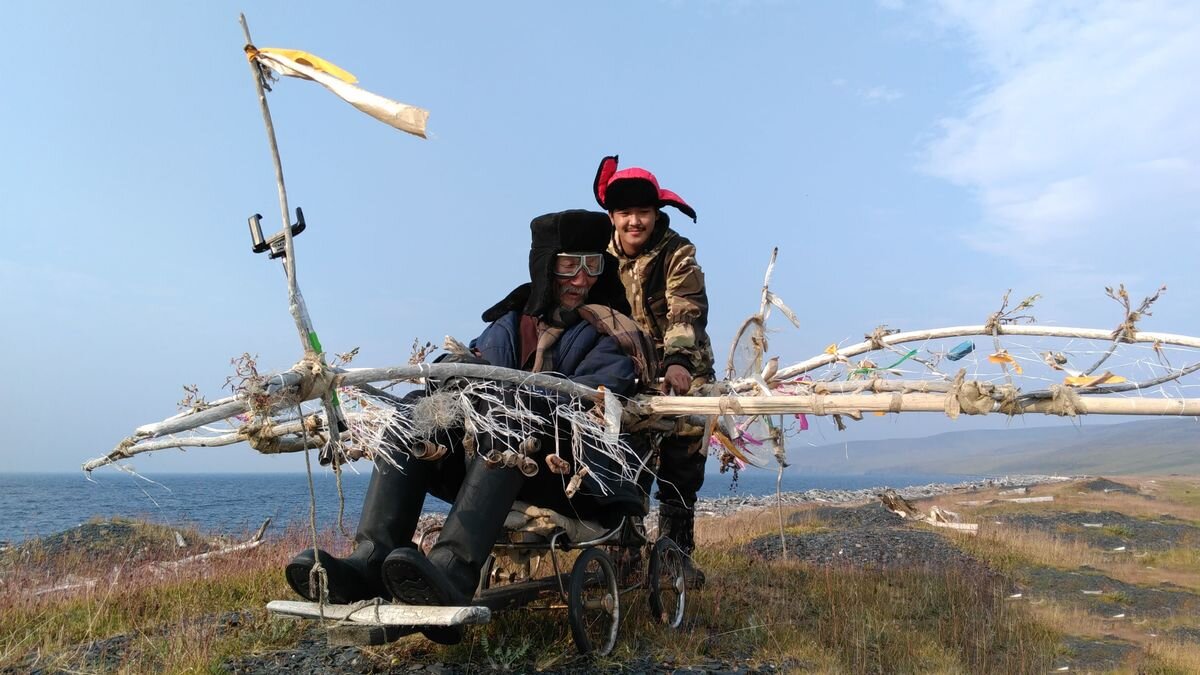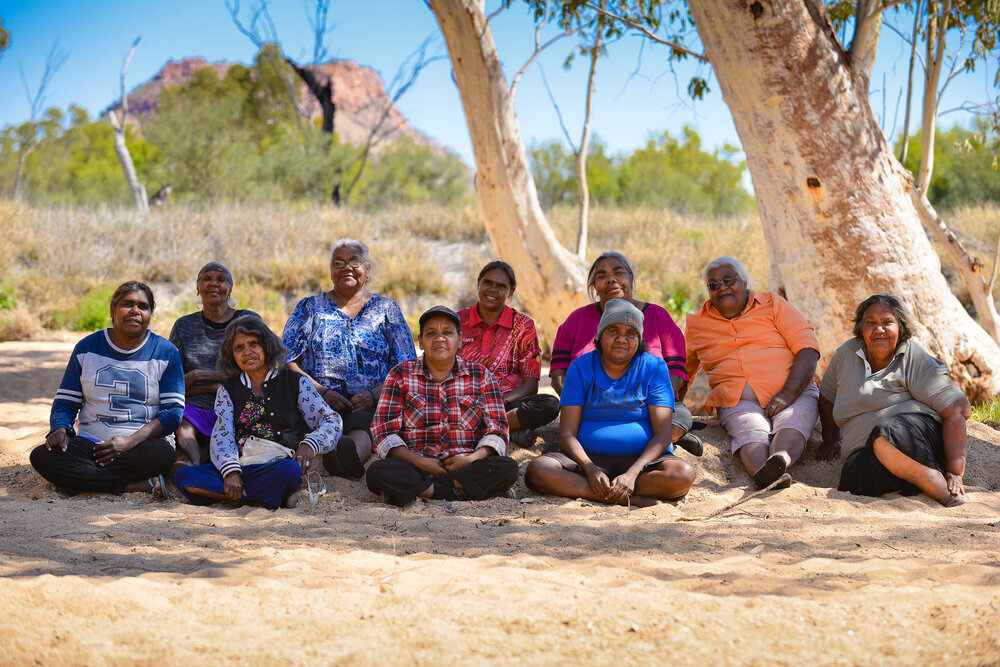'Birrarangga Film Festival 2021' / Interview with Tony Briggs
“Providing a platform like this, to say it like it is, from people with a lived experience, is a really rare occurrence. It is undoubtedly the truth, because it’s our lived truth.”
The Birrarangga Film Festival, a celebration of Indigenous films from around the globe, will return to Melbourne from March 11-14, 2021. Featuring a diverse collection of feature length narrative, documentary and short films, this year’s festival will screen works from Canada, New Zealand, U.S.A, Chile, Greenland, Peru, Russia, Finland, Norway, Solomon Islands and Australia.
The inaugural Birrarangga Film Festival took place two years ago in Melbourne, brought together by the creative partnership of Wurundjeri/Yorta Yorta screen creative Tony Briggs (creator and writer of The Sapphires) and producer Damienne Pradier of Typecast Entertainment. Following a positive reception from audiences and the cultural community, the biennial festival returns in 2021 with an impressive program line-up of over 70 films.
Restless River (2019) dir. Marie-Helene Cousineau & Madeline Ivalu (Inuit)
I spoke with Artistic Director Tony Briggs about the festival’s lineup this year and the diverse creativity within Indigenous communities.
What are Birrarangga’s goals in bringing global Indigenous filmmaking together?
The goal is to showcase Indigenous work. To provide an opportunity for Indigenous Filmmakers to have their work seen and their voice heard. For decades now, our voices have been muted – in this technological age, it’s disconcerting to witness that still happening. I think when you’re living in a time where you have access to so much information about so many different topics, you have to search through the good and the bad, the truth and the un-truth. Providing a platform like this, to say it like it is, from people with a lived experience, is a really rare occurrence. It is undoubtedly the truth, because it’s our lived truth.
The interesting thing about collating all these stories from my personal perspective is how aligned as Indigenous people we are, all around the globe, because of our cultural practices and storytelling abilities. We’re talking about the same things. Although we are separated by distance, we’re tightly intertwined by culture and understanding that we have very strong similarities, no matter what our language group or heritage. This is the first Indigenous festival in Victoria. Being able to present these stories and themes gives me a great sense of pride.
I can sense a growing consciousness that Indigenous voices are some of the most important ones to be listened to right now – environmentally and socially.
I’m glad that there’s a sense that that’s happening, but what blows me away is that these are the kinds of things that have been consistently spoken about by Indigenous people. It’s really interesting to watch how slow the uptake is by people of other cultures – let’s face it – the ruling cultures. I think the realisation that, as a united group, Indigenous people on a global scale are an incredibly powerful voice now.
There’s a film called Eating Up Easter that we have in our program. It’s from Rapa Nui (Easter Island). It talks about their struggle with maintaining their culture and coexisting with change that happens – but also fighting against the change that’s destroying their country. This is really a universal theme for Indigenous people. These things are important, not just to Indigenous people, but for the world. These are stories that people have gotta listen to. They just have to pay attention to.
Eating Up Easter (2018) dir. Sergio Mata’u Rapu (Rapanui)
Are there particular genres or themes you’re interested in giving a larger presence in this festival?
I wouldn’t say there’s anything particular, but I will say there are a couple of films that are really powerful that people shouldn’t miss. We’ve got a film called Blood Quantum in our program. It’s quite a full-on zombie film – all the Indigenous inhabitants of this world are immune to the plague. Everyone else is out there dying. It’s a great film, I’m not into zombie films, but there’s just a difference to it. I’m intrigued by zombie films now, because of this film.
Our opening night film Firestarter is about the Bangarra Dance Company, that’s a really beautiful homage to an incredible Australian Company that has its roots firmly planted on this country, spread all over the globe. It talks about the tragedy and the loss they’ve had, the adversity they’ve had to fight through to maintain their place and be able to maintain their place in Australian Artistic Culture. We’re really proud to have Firestarter and support their story.
Our Closing Night Film is called The Sun Above Me Never Sets – from Russia. I shouldn’t say this, but I can’t help myself. It’s probably my favourite film, and that’s saying something. This film is such a beautifully told story, a young man and an old man are forced together in this remote place, and they’re both searching for something, which they find through their friendship. It’s beautiful. I really recommend that film. Everything else in between in our program is such a bonus. I have them on a loop in my house.
I do want to mention there are a couple of stories in here about issues that can be triggering for some people, but they are very well worth watching, they must be seen. I would never have programmed them if they weren’t. I program things that touch me, affect me in an emotional way, or things that I believe are so important that they need to be heard, they need to be seen in this country, to remind people that we are collectively fighting for justice for our own survival, whether Indigenous or non-Indigenous. There’s a film in there called Not Just Numbers, about a women’s family safety group, about these inspirational women working in their communities to raise awareness around family violence. It’s from Alice Springs. It’s poignant in the festival. One of the participants in the film has now left us, because of that very issue. We’ve got permission to screen this film for that cause to promote the realities of what these women, and many women around the country are dealing with, silently or otherwise. I’m grateful and proud that we’re presenting that film.
Another one that does deserve a mention is a documentary called nîpawistamâsowin: We Will Stand Up, directed by a first nations woman from Canada whose name is Tasha Hubbard. It follows the family of a young man who was murdered, whose name is Colten Boushie. He was murdered by a farmer, indiscriminately, cold-blooded. They’ve never been brought to justice, still to this day they’re fighting for justice. They even took it to the prime minister of Canada, but nothing has happened. That’s a really strong film. For me there are parallels to the idea of injustices suffered by Aboriginal people and trying to find justice for people who have been murdered at the hands of those who have privilege.
nîpawistamâsowin: We Will Stand Up (2019) dir. Tasha Hubbard (Cree)
I can tell by the way you’re talking about these films how they speak to you.
I’m really proud because I look at the work, and it gets me excited to see the diversity and creativity within Indigenous communities all over the world.
One of the main things for my producing partner Damienne Pradier and I is to inspire and help create works for the next generation, while creating things that are good for the soul of our generation. Just look at the artwork on the front of our program from Charlotte Allingham (@coffinbirth), a really cutting-edge indigenous Artist. She’s done this artwork for us that’s just so awesome. Holy heck. We had a conversation with her for about half an hour, and within a day she had this thing done. It blew us away. That’s the kind of stuff that’s cutting edge for us. I’m really proud.
See Birrarangga Film Festival’s 2021 Program at birrarangga.world, and grab your tickets at the ACMI website.
Tony Briggs is a Yorta Yorta/Wurundjeri Stage and Screen Creative - Actor, Writer, Director and Producer - based in Melbourne, Victoria. As the creator and writer of the hit feature film The Sapphires, premiering at the Cannes Film Festival 2012, Tony received two AWGIE awards whilst the film won 11 of 12 categories at AACTA 2013. Tony also wrote The Sapphires Stage Play, having sell-out seasons at the MTC and Belvoir, winning two Helpmann Awards. Tony is co-originator, executive producer and writer of the eight-part TV series The Warriors (2016). As an actor of over 20 years he holds many credits to his name including feature roles in The Slap (2010), Broken Shore (2013), Cleverman (2015), Seven Types of Ambiguity (2017) and Rake (2018). He is the Artistic Director of Birrarangga Film Festival and creator of Blak Masterclasses and Labs for emerging Indigenous screen practitioners. He is currently co-writing the feature film, The White Girl, an adaptation of award-winning novel by Tony Birch, while also developing his high-end TV series Eden and several other projects. He directed the short film, Elders premiering at Berlinale, imagineNATIVE, Sydney Film Festival, Melbourne International Film Festival and many Festivals around the world.
Interview by George Ketels.
Thank you for reading this article. Before you leave the page, we’d like you to take a moment to read this statement. We are asking our readers to take action and stand with the BIPOC community who fight and endure the oppression and injustice of racial inequality.
Here in ‘Australia’, Indigenous people are the most incarcerated population on Earth. Countless lives have been murdered by white police, white government policies and this country’s white history, institutionalised colonialism and ongoing racial oppression. Racial injustice continues today under the phoney, self-congratulatory politics of ‘Reconciliation’ and the notion that colonialism is something that must be denied and forgotten, an uncomfortable artefact of the past.
Feeling guilty is not enough. We must take action, pay the rent, educate ourselves and acknowledge that empathy and sorrow for past actions is insufficient if this does nothing to prevent our current reality from extending into the future.
Please consider making donations to the following organisations (the list is so small and the work to be done is so large, do your research to find more grassroots, Indigenous-lead community organisations):
Indigenous Social Justice Association - fighting to stop Indigenous deaths in custody
Firesticks Alliance - who campaign for Indigenous land management, cultural burning and looking after Country








